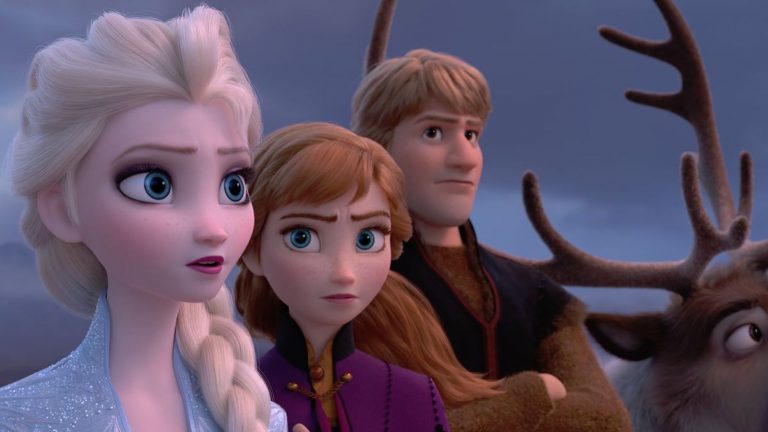It’s beyond me why the Disney short showing before the new movie Coco (which itself is fantastic) is getting such terrible reviews. It might have something to do with an aspect of Internet culture.
Tradition anxiety is prompted by the depth of the history associated with the winter holiday. You can make a bigger splash on social media by brutally criticizing something than by praising it. Then the tipping point arrives and everyone somehow has to agree something is terrible even when it is not (the paradigmatic case of Rebecca Black’s “Friday” comes to mind).
In any case, I found the short to be beautifully touching, profoundly relevant, and emotionally powerful. It deals head on with a problem that nearly everyone has this time of year but no one really talks about much: we all have tradition anxiety. What are our distinct traditions, how do we practice them, and what happens to us if we can’t remember them, can’t practice them, or secretly don’t like them? What if we fail?
Fear of Disconnect
Tradition anxiety is prompted by the depth of the history associated with the winter holiday. It dates from antiquity with the winter solstice (the shortest day of the year) which might have been celebrated as long as 15,000 years ago. That became Chanukah in the Jewish tradition, Christmas in the Christian tradition (except among the many sects of Christianity that sought to abolish the holiday as pagan), and, more recently, Festivus among the fully secularized.
The roots of the season are so deep. It comes upon us in such a regular annual pattern and makes a gigantic cultural splash. We feel all kinds of pressures. We need to buy the right gifts, attend the right ceremonies, and be around the right people. We are all supposed to have our distinct traditions that we revisit that make us feel connected to the past, rooted in something larger than ourselves, and deferentially pious toward our faith and ancestry.
A European friend of mine was visiting the United States during Christmas a few years back. She laughed at how everyone was working to establish new traditions for the holidays. She asked me: “Do Americans just call anything a tradition if they make it up, do it once, and forget it?”
I thought about it. The answer is yes. We really do. It happens in every household, this annual announcement of a new tradition. Whether it is continued is another matter. We have changed the very definition of the word from “something that has always been done” to be “something we just decided to do this once.” She claimed this is distinctly American.
Maybe that is right. America has always been one of the most consistently fast changing, mobile, diverse, and culturally malleable countries on the planet. Every year, the holidays are different from before, making settled practices that extend over generations – or even one lifetime – hard to come by. It makes sense that our understanding of tradition would take on a distinct expression.
Anna and Elsa
In any case, in the film short “Olaf’s Frozen Adventure,” Anna and Elsa find themselves in a similar situation as many people. It is the first season they have experienced as the custodians of their castle without their parents, and they expect to be the hosts of a grand party. They open the gates once more, sing a song, and cheer with the people of Arendelle.
The sisters feel suddenly alone and without any real tradition to practice.
Then something unexpected happens. The townspeople all leave to go back to their separate houses. Each person rattles off some hilarious tradition he or she is preparing to practice. They involve things like baking some special treat, knitting socks, singing some special song, and so on.
Their grand dining hall in the castle is empty. The sisters feel suddenly alone and without any real tradition to practice.
Their old friend Sven shows up to sing his traditional song and prepares to make his traditional soup. This signals to Olaf the snowman – and I do agree that he can be enormously annoying – that there is a problem. The beloved sisters are feeling lost and lonely, barren of a rooted identity and rituals.
Olaf and the reindeer depart to investigate and collect traditions to take back to the castle. They are looking for anything that is rooted and repeated: stockings, fruitcakes, presents, special drinks, songs, anything. They collect them one by one and put them in a sleigh. It’s a funny confusion he has, thinking that a tradition is a kind of commodity that you pick up and bring to someone to adopt. It’s a confusion, but it is one that many people have!
Collecting and Losing Traditions
On the way back, however, there is a mishap.
Spoilers below.
The sleigh catches on fire and falls off a cliff, burning up all the traditions. Olaf becomes sad, even despairing, and wanders off into the forest. The reindeer goes back into town to let everyone know about what happened, and the search is on. They finally find Olaf and bring him back. He tells them that he is completely empty handed, that all the traditions burned up. He has failed them completely.
Elsa then has an idea. She goes back through family lore to find a box with items in it from their childhood. What she discovers is a series of drawings, dolls, and written memories. Each one of the artifacts revolves around: Olaf. Olaf, as it turns out, is their family tradition. It is not a thing, a ritual, or even a song. It is a person that they love. They have all they need to have the best Christmas tradition: each other.
Christmas is an affair of the heart, and this is much more important than any manufactured tradition. Before you dismiss this as overly sentimental and filiopietistic blather, let me just say that it is actually a very moving scene that points to a truth that we all tend to forget. The holidays are about valuing people who are special in our life. It can be family, children, parents, spouses, or friends, or even the family pet. Christmas is an affair of the heart, and this is much more important than any of the manufactured traditions we come up with to make us feel a sense of belonging.
The power of the film short is that it deals directly with someone nearly everyone experiences this season, that sense of being left out or abandoned. It touches us not only because we love Elsa and Anna; it moves us also because if the queen and her sister can feel this, it is ok that we too feel it. And their resolution of the problem is also one we should embrace.
As the film short ended, and I was wiping tears from my eyes, I felt a special sense of gratitude for the creativity, industry, and distribution system that allowed me to have access to such a powerful piece of media.
Let the haters hate. “Olaf’s Frozen Adventure” is beautiful.
This article originally appeared on FEE.














Add comment